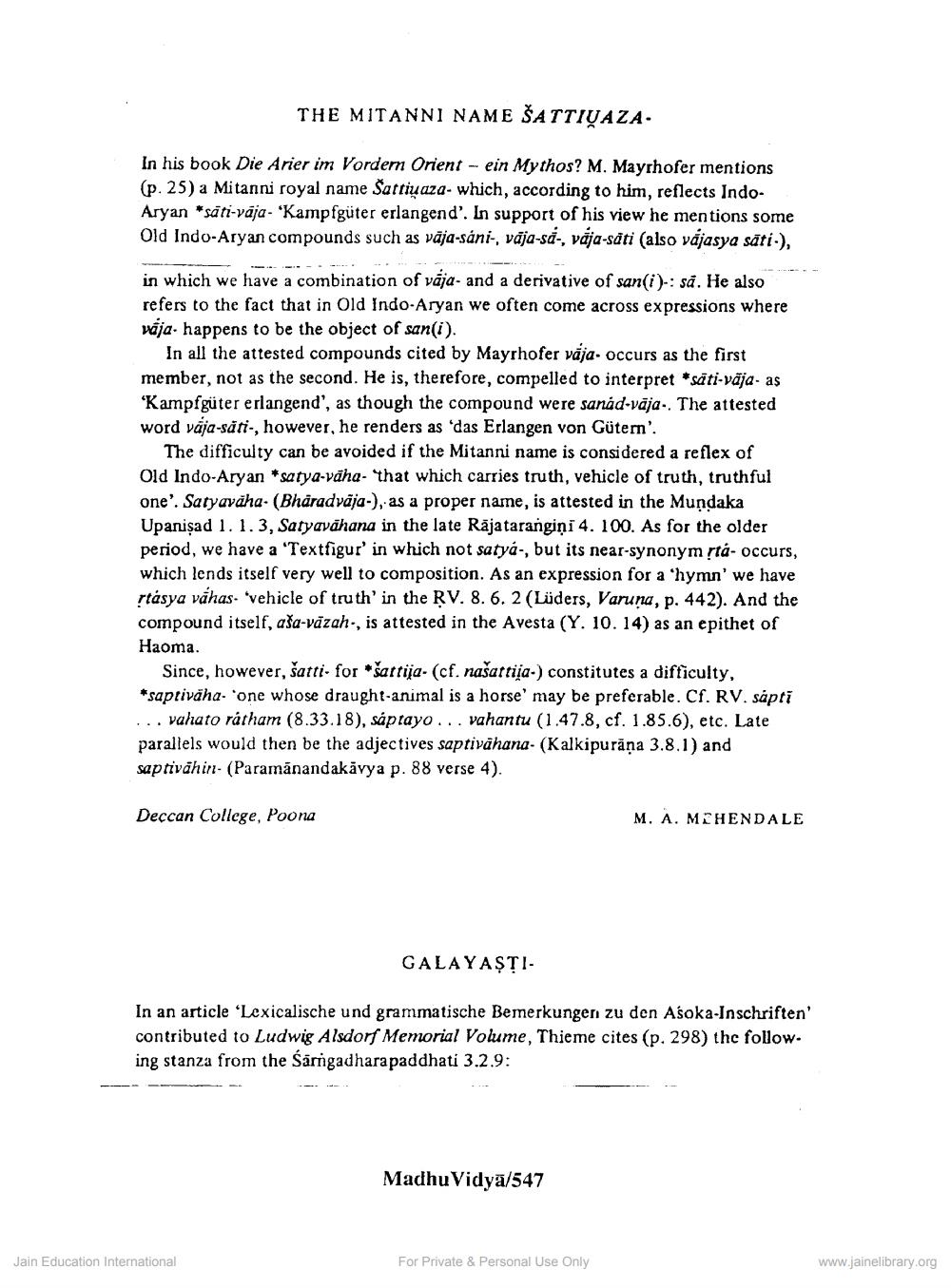________________
THE MITANNI NAME ŠATTIVAZA
In his book Die Arier im Vordern Orient - ein Mythos? M. Mayrhofer mentions (p. 25) a Mitanni royal name Sattiuaza- which, according to him, reflects IndoAryan *sati-vaja. "Kampfgüter erlangend'. In support of his view he mentions some Old Indo-Aryan compounds such as vāja-säni-, vāja-sá, vája-sati (also vájasya sati.),
in which we have a combination of vaja- and a derivative of san(i): sã. He also refers to the fact that in Old Indo-Aryan we often come across expressions where waja happens to be the object of san(i).
In all the attested compounds cited by Mayrhofer vája- occurs as the first member, not as the second. He is, therefore, compelled to interpret sati-vdja- as 'Kampfgüter erlangend', as though the compound were sanad-vaja-. The attested word vaja-sati-, however, he renders as 'das Erlangen von Gütern'.
The difficulty can be avoided if the Mitanni name is considered a reflex of Old Indo-Aryan *satya-vaha "that which carries truth, vehicle of truth, truthful one'. Satyavaha- (Bharadvaja-), as a proper name, is attested in the Mundaka Upanisad 1. 1. 3, Satyavahana in the late Rajatarangini 4. 100. As for the older period, we have a 'Textfigur' in which not satya-, but its near-synonym ṛtá- occurs, which lends itself very well to composition. As an expression for a 'hymn' we have rtasya váhas 'vehicle of truth' in the RV. 8. 6. 2 (Lüders, Varuna, p. 442). And the compound itself, aša-vazah, is attested in the Avesta (Y. 10. 14) as an epithet of Haoma.
Since, however, šarti- for lartija (cf. našattija-) constitutes a difficulty. *saptivaha- "one whose draught-animal is a horse' may be preferable. Cf. RV. săpti . . . vahato ratham (8.33.18), sảptayo . . . vahantu (1.47.8, cf. 1.85.6), etc. Late parallels would then be the adjectives saptivahana (Kalkipurana 3.8.1) and saptivahin (Paramanandakāvya p. 88 verse 4).
Deccan College, Poona
GALAYAŞTI
Jain Education International
In an article 'Lexicalische und grammatische Bemerkungen zu den Aśoka-Inschriften' contributed to Ludwig Alsdorf Memorial Volume, Thieme cites (p. 298) the follow. ing stanza from the Sarngadharapaddhati 3.2.9:
Madhu Vidya/547
M. A. MCHENDALE
For Private & Personal Use Only
www.jainelibrary.org




